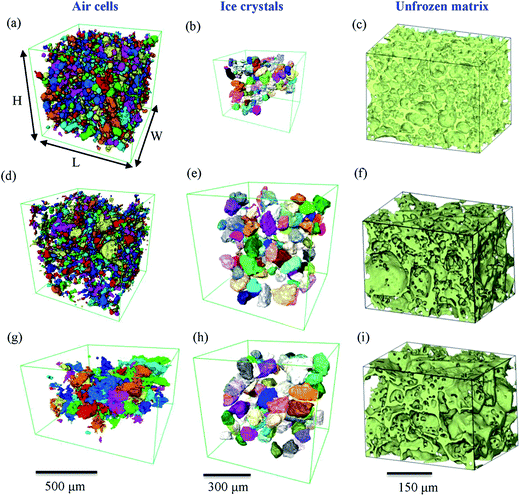Thermo Fisher Scientific › Electron Microscopy › Electron Microscopes › 3D Visualization, Analysis and EM Software › Use Case Gallery
The microstructure of food affects our sensorial perception, its attractiveness, and the manufactured product’s shelf-life.

Microstructural evolution in soft matter directly influences not only the material’s mechanical and functional properties, but also our perception of that material’s taste. Using synchrotron X-ray tomography and cryo-SEM we investigated the time–temperature evolution of ice cream’s microstructure. This was enabled via three advances in synchrotron tomography: a bespoke tomography cold stage; improvements in pink beam in line phase contrast; and a novel image processing strategy for reconstructing and denoising in line phase contrast tomographic images. Using these three advances, we qualitatively and quantitatively investigated the effect of thermal changes on the ice cream’s microstructure after 0, 7 and 14 thermal cycles between −15 and −5 °C. The results demonstrate the effect of thermal cycling on the coarsening of both the air cells and ice crystals in ice cream. The growth of ice crystals almost ceases after 7 thermal cycles when they approach the size of the walls between air cells, while air cells continue to coarsen, forming interconnected channels. We demonstrate that the tomographic volumes provide a statistically more representative sample than cryo-SEM, and elucidate the three dimensional morphology and connectivity of phases. This resulted in new insights including the role of air cells in limiting ice crystal coarsening.
the reconstructed volume was cropped into a smaller volume for 3D analysis. 3D rendering of the features, as well as quantification of size, etc., was performed using Avizo. The watershed algorithm provided in the Avizo software was used to separate the features for quantification.
For Research Use Only. Not for use in diagnostic procedures.